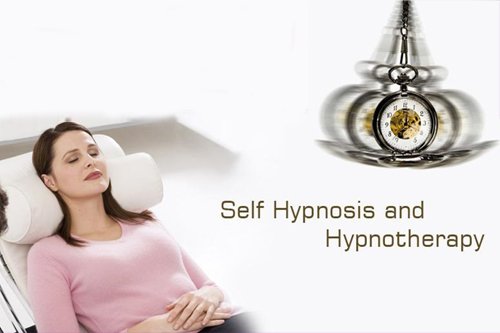
Date/Time
Date(s) - 05/03/2023
5:00 pm - 8:00 pm
Categories No Categories
About Hypnotherapy
In this state, the subject will be at ease physically yet in a fully awake mental state being highly responsive to suggestions given by the therapist. Done with the help of a trained professional this therapy can be used to avail umpteen number of benefits using the inner mind of the subject.
As a therapeutic procedure hypnosis can be used to bring intended changes in a person’s sensations, feelings, perceptions, thoughts and behaviors. It has been recognized as a valid medical therapy since 1955 in Great Britain and 1958 in the United States.
Why learn Hypnotherapy
- Hypertension
- Anxiety
- Stress
- Fear
- Migraine Headache
- IBS (Irritable Bowel Syndrome)
- Asthma
- Phobias
- Insomnia
- Vertigo
- Addictions and bad habits
- Bedwetting
- Eating disorders
- Warts
- Skin disorders like acne, psoriasis, eczema, tinnitus, rings in the ear etc
- Weight loss, weight gain
- Pain during periods
- OCD(Obsessive Compulsive Disorder)
- Sleep disorders
- Depression
- Post operation Pain
- Crisis management
- Strange mental disorders
- Disturbed thoughts
- Sexual problems
- Aggressive behaviour
- Timidity
- To ease pain
- To increase relaxation
- Excessive sweating and many more
What will the course cover?
Level 1
Brief History of Hypnosis
The Theory of Mind
Understanding the Subconscious
Accessing & Understanding the Power of the Subconscious
Interactive Conversation with the Subconscious
Experiencing being in the Hypnotic state
How to create the Hypnotic State
The Theory of Suggestibility
The Laws of Suggestibility
Self-Hypnosis
How to Conduct Self Session
Deepening Techniques
Demonstration of different Induction Techniques
Wording of Effective Suggestions/Affirmations
Practice of Placing a Positive suggestion under Hypnosis
Level 2
Astral Travel
Introduction to your spiritual guides and Angels
Know how to work with your Guides and Angels
How to conduct a Hypnotic session on others
Hypnotherapy Strategies to Assist Health Issues
Eliminating Fears and Phobias through hypnotherapy
Other various advanced Suggestion Therapy techniques
Here are some of the Myths & Misconceptions about hypnotherapy
Here are some of the Myths & Misconceptions about hypnotherapy
Myth: Only mentally weak can be hypnotised
Fact: This isn’t true. In fact, the exact reverse is probably more true. The higher your intelligence and the stronger your self-control, the more easily you are hypnotized.
That’s because entering a hypnotic trance is all about concentrating, so people with severe mental health problems and skepticism can find it difficult.
However, finding it hard to enter hypnotic state doesn’t mean there is something wrong with you. People naturally vary in how susceptible they are to hypnosis. Studies have shown that around 30% of people are relatively resistant to being hypnotised. Although, with effort and practice of certain meditation techniques the state can usually be achieved eventually.
Myth: The hypnotised get mesmerized by the therapist and are helpless during the session
Fact: Also, false. It’s difficult to get people to do things under hypnosis that they wouldn’t normally do. While hypnotised people are still in touch with their morals and normal standards of behavior.
That said, though, it is possible to reduce people’s inhibitions under hypnosis and they will more readily accept suggestions.
Myth: Hypnosis is sleep
Fact: Yes, people look like they’re asleep when they’re hypnotised because their eyes are closed and they’re peaceful. But they’re not asleep. The brain waves of a person who is hypnotised are nothing like those of a person who is asleep.
In fact the hypnotic trance is a heightened state of concentration. A high level of alpha waves on an EEG show that a hypnotised person is awake, alert and very responsive.
Myth: A hypnotist can cure me in one session!
Fact: Some of the most outrageous claims are made about hypnotism (although usually not by hypnotherapists themselves). These have their origins in stage hypnotism as well as hucksters of all types.
The truth is that almost no one is cured in one session, if they are cured at all through hypnosis. Hypnotherapists usually insist that patients commit to at least 6 sessions, or sometimes 20 sessions. This isn’t naked profiteering, change takes time.
Even then, hypnotherapy is often used as an added extra to some other kind of treatment, rather than as the main method.
Myth: Hypnotists must be flamboyant or weird or like a Baba and must have special/mysterious powers
Fact: Your average hypnotist is much more likely to wear a professional attire. It’s funny how even quite intelligent people sometime believe this! A hypnotist is a normal person who eats, sleeps, feels happy and sad, and loses their car keys. There is nothing special or magical about them at all. We have simply been trained, and have honed this training with experience, to help guide people into a hypnotic state.
A stage hypnotist may play on having ‘hypnotic powers’ in order to add excitement and drama to their shows, but they too will readily admit that they are simply using techniques that have been learnt and developed with practice and experience.
Myth: You can’t hear anything outside you when you get hypnotized.
Fact: Oh yes you can! Hypnosis is not some kind of magical state in which you can not only speak but can’t hear anything. This is a natural result of the fact that you are not helpless when hypnotised and your usual moral (and immoral) faculties are still active. Not only can you hear everything around under hypnosis, but all your senses are more active and sharp than otherwise.
Myth: You’ve never been hypnotised
Fact: Many people think they’ve never been hypnotised since they’ve never been to a hypnotherapist. In reality, most of us have experienced a state of mild hypnosis, at least.
For example, when you drive a long distance and start to feel dissociated from your body and the car, that’s a mild state of hypnosis. Your unconscious is taking care of all the mechanical aspects of driving while your conscious mind is free to float around.
Or if you’ve ever meditated then you’ve hypnotised yourself. Meditation is really a specific type of hypnosis.
Myth: People sometimes become stuck in hypnosis.
Fact: This is simply not true, despite what the tabloid press occasionally claim. On rare occasions a subject may not come out of the trance straight away. This is usually because they are enjoying the relaxing state so much that they don’t want to come out. A few gentle prompts, such as threatening to charge double for a longer session, is always sufficient to wake them Hypnosis is milder and safer than going asleep.
No one has ever been stuck in a hypnotic trance. Hypnosis is a naturally occurring state that we enter and exit during the normal course of a day. There are no known or reported dangers with hypnosis when working with a trained practitioner. If the hypnotist fails to emerge someone from hypnosis, he/she will return to a fully alert state on their own. Depending on that person’s need for sleep, he/she will either drift on into a natural sleep or simply emerge to full consciousness spontaneously within minutes.
When in the state of hypnosis, our brainwaves vacillate through the Alpha to Theta ranges. Any time you choose to emerge from hypnosis, for any reason, you are able to simply open your eyes and become fully alert. If you were practicing self-hypnosis before going to bed and ended in the Delta state, then it would mean you’d simply fall asleep.
Fact: Although some researchers and clinicians claim that some people are not able to be hypnotized, everyone has the ability to dive into meditative or trance state because it’s a natural, normal state that each of us enter at least twice each day – upon awakening and falling asleep. We also enter a hypnotic state whenever we get totally engrossed in a movie or TV show. When the actors become the characters, they portray in our minds, we are hypnotized. Also, whenever we are driving and daydreaming enough to miss a turn or freeway exit we know to take, we probably were experiencing a light state of hypnosis.
People may have this misconception because of an unsuccessful experience they’ve had with a hypnotist. People are responsive to different approaches, and if a particular approach has not been successful in the past, it’s a matter of finding the way that works best for them. Certified Hypnotherapists/Hypnotists have several techniques that they can use, and are trained to find a method that will work best for you.
Note by the Mentor Dr Purvi
Hypnotherapy is becoming an increasingly popular form of Holistic Therapy. As a ‘non-invasive’ therapy this will work for nearly everyone. Rapidly this therapy is becoming very much a part of the Holistic Therapist’s tool kit and understandably so, as many ailments and illnesses occur owing to what takes place in our heads, long before they manifest in our bodies or in our behavior.
We believe that this is the most comprehensive and innovative course in its field. Students will be able to learn the techniques of a ‘Practicing Professional Therapist’. Our own practical experiences will be shared with all those who enroll for this exceptional course.
Hypnotherapy is an effective and speedy technique to apply in the process of Psychotherapy. You will learn through this advanced course how to successfully treat many physical problems, phobias, fears, habits, communication and people interaction difficulties, as well as low self-esteem.
Hypnotherapy can have a highly positive effect in the treatment of a variety of Physical and Psychological conditions ranging from stress-related illnesses to allergies, skin problems, migraine, high blood pressure, weight loss, self-defeating lifestyles, and the control of chronic pain as occurs in degenerative diseases.
Hypnotherapy is also recognized as extremely helpful in the treatment of unwanted dependencies such as smoking and alcohol consumption. Neurotic conditions such as vertigo and fear of flying are also susceptible to Hypnotherapy, as are the management of personal crises such as bereavement and redundancy. On a more general level, hypnotherapy can be very helpful in optimizing personal well-being and achieving ‘personal growth’. It can be instrumental in the growth of your business too.
So, there you go, hypnosis and hypnotherapy is not magical or mysterious when you know the true facts. It is simply a group of techniques for focusing the mind so that the unconscious can absorb pre-agreed suggestions, in order to facilitate change. However the reality has been bent and distorted by sensationalism. This is a pity because this can, and probably does, prevent many people, who would greatly benefit from hypnotherapy, from daring to try it for the first time.
I urge you to make a commitment and try hypnosis once. It is perfectly safe so you have nothing to lose. If it is not for you, then simply disregard it. If hypnotherapy is for you, then you will have unlocked a whole world of possibilities for personal growth, change and improvement. Many people’s lives have been turned around with hypnosis. Don’t let this potential opportunity slip you by.
Bookings
Bookings are closed for this event.















No Comments